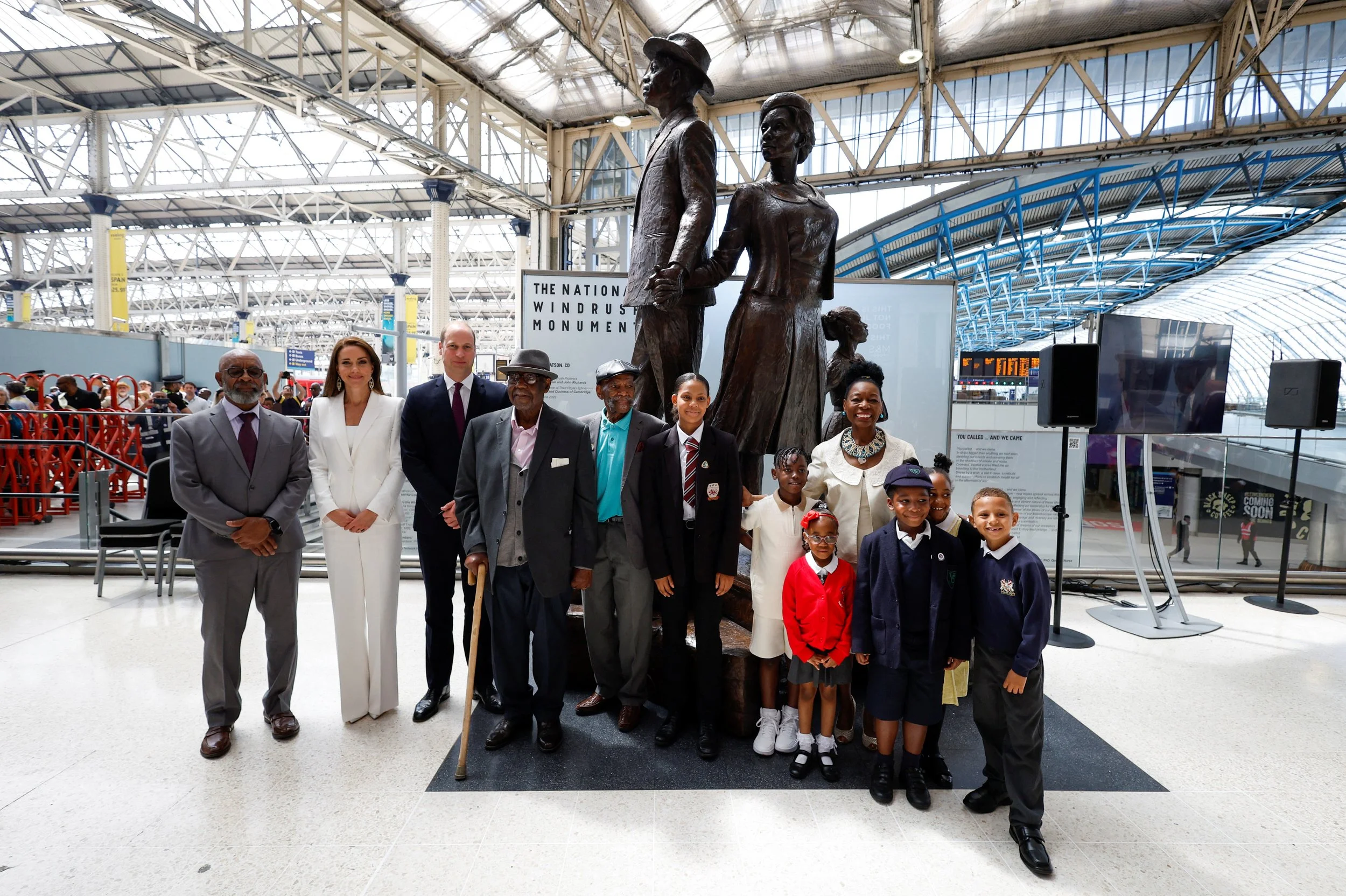The Windrush generation's long journey to justice and parity
They came in hope and anticipation because there were jobs available and a motherland to support. But they arrived in a country still shattered by a six-year war, and little did they know that they would have their own struggles to overcome – and some over a much longer period.
They were the Windrush generation, named after the Empire Windrush ship, which docked in the UK on June 22, 1948 – 75 years ago this week.
The name of the ship – a 1930s German cruise liner, requisitioned by the Nazis as a troop carrier and seized by the British in 1945 – became emblematic of an entire generation who migrated to the UK from its former imperial outposts. Indeed, the generation outlived the empire.
The 492 souls who disembarked that first voyage in Tilbury, Essex, just downstream of London, had come 7,500 kilometers from the Caribbean to answer the clarion call from the mother country. Many had already done that once earlier in the decade, when troops were needed for the war effort. Now they were back to help overcome labor shortages, including in the box-fresh National Health Service.
But while they were finding work, they were also finding resistance.
Choosing your battles
"When they came to this country, they were fighting already and they had to choose their battles very carefully," says Hazel Rennalls, whose parents were part of the Windrush generation. "Every day was a fight for them – they had to fight the weather, they had to fight the environment, they had to fight the people. They had to fight for a place in this society."
Her family's story is typical. "My dad came first, and just took it in his stride," she recalls. "He was a little bit shocked, but he came here with his brother and the two of them thought, 'It's different, but we can cope with this.' My mom, on the other hand… when she joined him a year later, she was really very vocal about the fact that it was awful and it wasn't what they expected.
"It was freezing cold, the houses looked like factories, it was just gray and bleak. When she got here, she remembers thinking, 'I have made the biggest mistake of my life.'"
At least they had work to go to, and what they expected to be a welcome – as Rennalls puts it, "They thought that they were going to be received as 'Here are the people who are going to help us to build up our country.'"
Instead, in a country still shattered from the war effort – rationing didn't end until 1954 – they encountered suspicion, division and sometimes outright abuse. But Hazel Rennalls' parents refused to respond in kind, and told their 11 children to rise above it.
"'You should be the example,' they said. 'Don't stoop to that level. If people say horrible things to you, say nice things back to them.' They were friendly people.
"And people who dished out any kind of racism very soon revised that and became more accepting of them, because my parents were friendly and very open and accepting and people picked that up."
Even so, on a nationwide scale, the Windrush generation is still under-represented.
"How many black teachers are there at high levels?" asks Les Johnson, founder and chair of the National Windrush Museum. "How many black professors are there? How many individuals are employed at the highest levels of institutions in Britain?"
The Windrush scandal
The Windrush generation also suffered directly from a scandal that came to light in 2018. The 1971 Immigration Act had given Commonwealth citizens living in the UK 'indefinite leave to remain' – but the Home Office kept no records and indeed had destroyed landing cards belonging to Windrush migrants.
This meant they were prevented from accessing healthcare, housing and employment, and many were threatened with deportation. A review of historical cases found at least 83 had been wrongly deported.
The then Prime Minister Theresa May apologized but an inquiry report called the scandal "foreseeable and avoidable," criticizing a "culture of disbelief and carelessness" at the Home Office. The inquiry made several recommendations – but in January 2023 , interior minister Suella Braverman announced the government was dropping three of its commitments.
No wonder, then, that for Johnson the 75th anniversary is a bittersweet moment.
"It's most definitely a celebration, but more so it's a commemoration – a recognition of the contributions of the pioneers that came on the Empire Windrush, their sons and daughters and their children and their grandchildren," he says. "We need to look at the legacies that these individuals have given to the country.
"However, there's still much that needs to be done. There's much that needs to be achieved by the British government, by local governments, by businesses in terms of equal opportunities. And therefore, from that point of view, we hope to see development and progress in the 'Windrush 75' year and beyond."
The past and the future
At Tilbury Docks, the anniversary is being marked in a striking way. The original footbridge has been repurposed into an exhibition called A Walkway of Memories, featuring imagery from the Windrush generation.
"Around 130 families throughout the UK sent me photographs, family memorabilia," explains Evewright, the visual artist responsible. "Not only that, they sent tickets, they sent contracts of their parents' first job. That's where all the images came from."
Reproduced on the very windows that the new faces will have peeped through as they tiptoed down the gangplank seeking a new life, the monochrome pictures pick up the light and shadows beyond, as if indicative of the mixed fortunes the incomers would face for decades afterwards.
Hazel Rennalls is at least convinced that things are getting better – that, to quote Martin Luther King Jr., "the arc of the moral universe is long, but it bends toward justice." And she highlights a more recent civil rights movement as being key to that.
"Since Black Lives Matter, I think things have changed," she says. "I think people go out of their way to say 'We don't have any bad feelings towards you.' Have you noticed how almost every single TV advert has a person of color in it?
"That to me reflects the people that I work amongst, the people that I walk amongst, the people that I live amongst – they're doing the same thing. They're going out of their way to say, 'Well, actually maybe we did have ignorant assumptions before, but now we know different.'"
The journey has been longer than 7,500 kilometers, and it will be longer than 75 years – but it seems people are increasingly traveling it together, and in hope of a better future.
Originally published by CGTN Europe, 24 June 2023






